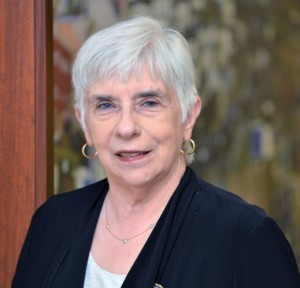As part of our “You Said It” Op-Ed series, we invite contributors to submit their opinion pieces. Have a submission? Contact us here.
If you are older and have experienced job loss, now is perhaps the time to search for a new job.
Even as the COVID-19 pandemic has nearly doubled the national unemployment rate to 6.7 percent in November from 3.5 percent in February, the Department of Labor reports job gains of 245,000 in November. Continuing that trend, the latest Department of Labor jobless claims decreased at the end of December for an adjusted unemployment rate of 3.6%. About 10 million of the 22 million jobs lost due to COVID have been recovered.
That good news arrives at the same time as a new report from The New School’s Schwartz Center of Economic Analysis showing that for the first time since 1973, workers 55 and older face higher unemployment rates than younger mid-career workers.
Still, the employment rates for workers over 55 are at their highest in history, at 25 percent, doubling from a historic low of 12 percent in 1995, according to the U.S. Bureau of Labor Statistics.
It is urgent to pay attention to this group of potential workers, as “the number of Americans ages 65 and older is projected to nearly double from 52 million in 2018 to 95 million by 2060, and the 65-and-older age group’s share of the total population will rise from 16 percent to 23 percent,” according to the Population Bulletin.

As a career development educator and job search trainer for over 25 years, I have assisted thousands of individuals—many in their 50s and 60s–in their career development and job search. Advising on at least 5,000 resumes and 3,000 individual career counseling appointments, I have over a 95% success rate in placing older individuals within a three-month period. The reason for such great success is that many older workers say they believe they can become re-employed and take appropriate actions to do so. Here are six tips for older workers looking to re-enter the job market.
Avoid misconceptions.
Unemployment is lessening with about 6.44 million job openings in the United States as of October 2020. States vary in their unemployment rate, with Nebraska at 3.0%, California 9.3%, and Hawaii 14.3%. With the number of older Americans growing at the same time as job openings, it is critical to note they have necessary skill sets and motivations for their reemployment.
Understand positive factors.
Many employers report they like what older workers bring. Older workers are skilled and experienced and have a strong work ethic. Many report the best teams are multi-generational.
Know retiring is a critical life decision.
Individuals over 55 who have lost their jobs due to COVID-19 or other reasons sometimes consider retiring. Still, reasons why healthy individuals might not retire, fall into the categories of social and financial. Individuals who continue to be employed may not have to penny-pinch, may have more time to save, higher Social Security benefits, health insurance and will be able to further delay tax payments. Social and personal reasons include colleagues from work as a social network and mental stimulation. Research shows a relationship between working and longevity.

Seek career counselors or job search trainers.
Individuals of any age searching for a new job, may need the expertise of both a career counselor and a job search trainer. Since many individuals who have a job think they can provide career counseling and job search training, it is necessary to seek appropriate credentials such as counseling, education, psychology, social work, and appropriate experience. A career counselor can help identify interests, skills that they want to use on the job, and values and discern psychological concerns and family support. A job search trainer assists in researching opportunities, developing resumes, practicing interviewing, and offering job-related and company-related information.
Seek training.
Research shows that many individuals have many careers in their lifetime, so this might be an excellent time to consider recareering. Retraining grants are available under state-level departments of employment security that do not have to be repaid. Offered under the Workforce Innovation and Opportunity Act, one can use this finder to identify training opportunities. Community colleges can be an ideal resource for obtaining certification for market-ready skills in a relatively short period on specific occupations. This certification finder is helpful. The American Association for Retired Persons, or AARP, offers free workshops and assistance for identifying community-based resources for individuals who are 50+. Short-term certificates at low costs are also available and LinkedIn premium provides training for a relatively low monthly premium after a trial period. An added benefit of pursuing a certificate is that it can explain employment history gaps to prospective employers.
Start a business or franchise.
Starting a business or buying a franchise becomes enticing if a worker received a severance package or decides to withdraw funds from their retirement accounts. Generally, the success rate of franchises is greater than the success rate of starting a business. The problem with either of these two options is that unemployed individuals’ skill sets tend not to be the skills needed to operate a franchise or a small business. This is even though typically franchisors provide their franchisees with training.

For older Americans, the searching strategy can include applying to known openings from job posting boards or on the career pages of targeted companies. Networking for a job can be overrated unless the individual who is hiring has personal knowledge of the candidate’s work experience. Using specialized retained and contingency headhunters are also good ways of identifying opportunities.
As the number of Americans working in their 70’s is skyrocketing, the implications for unemployed older workers is that getting a job is often a matter of obtaining expertise from career counselors and job search trainers plus investing in acquiring new skills.
Vivek Wadhwa, author, tech entrepreneur and Distinguished Fellow at the Labor and Worklife Program at Harvard Law School, advises, “We must first get over the myth that older workers can’t innovate.”
It is an optimal time to change perceptions and expectations of older workers and let them continue participating and innovating in the workforce of tomorrow.
More from Better:
- Sister Act: North Shore Interior Designer, Jodi Morton, Transforms Her Sister’s Glencoe Mid-century Home into an Eminently Stylish, Soothing Retreat
- The Best Eco-Friendly and Sustainable Activewear Brands to Keep You Moving in 2021
- Be Kind to Your Mind: 10 Groups and Individuals That Tear Down Mental Health Stigmas

Helen LaVan PhD is a Professor of Management at DePaul University in Chicago where she teaches human resource management and career development. Her areas of expertise are employee relations, including bullying and workplace violence, employment discrimination and arbitration. She holds a PhD from Loyola University, an MBA from DePaul University and MA in career counseling from Northeastern Illinois University. She is a licensed counselor in the State of Illinois. She has assisted in the development of over 4,000 resumes. She has consulted to various private and non-profit sector organizations and to family owned businesses on human resource selection and training.

